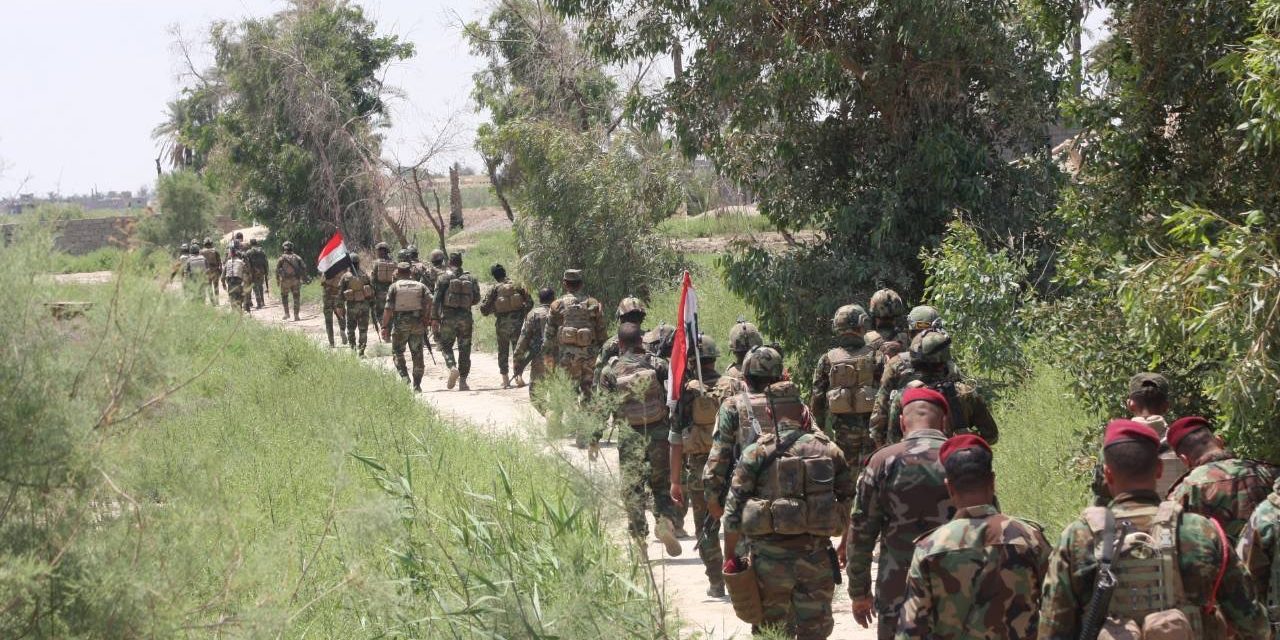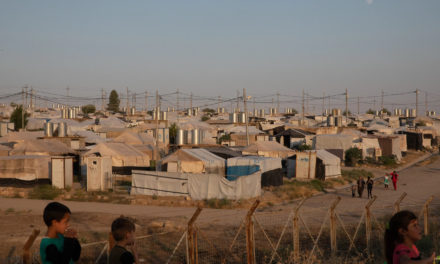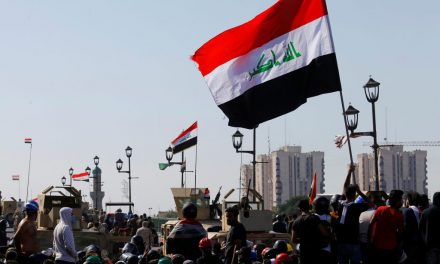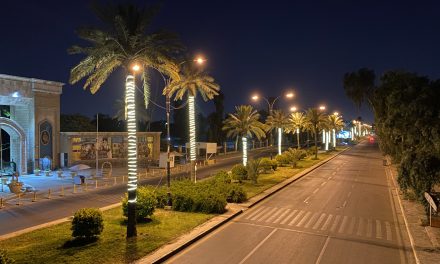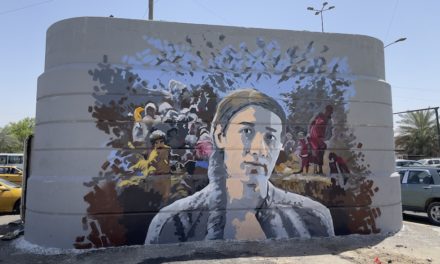It has been five months since Iraq’s flawed but peaceful elections and the country, predictably, still has no idea who is even in contention to be the next Prime Minister. The sluggish government formation process coupled with Iraqi streets teeming with anger and disdain towards the political elite paints a picture of a country slowly submerging in political quicksand. Such countries, especially in a region like the Middle East, are not usually associated with improving security but Iraq is anything but usual. For the fourth straight month, civilian fatality figure for July remained in the double digits (79 dead), underlining the dramatic decrease in violence that Iraq is embracing with both arms. As if that was not enough, last month’s injury figure (99 wounded) was probably the lowest since the 2003 American invasion began and certainly the lowest since the UN began releasing these monthly reports in November 2012 (455 dead, 1306 wounded that month). A bombing which killed three civilians at a market in Sadr City on Tuesday was the first significant terror incident the capital has had for months.
This state of relative peace does not quite add up with recent US government and UN reports that place the number of Da’ish militants in Iraq at around 15,000. While that figure is admittedly far lower than the one they boasted in the aftermath of the events of summer 2014, it is still a worrying number of terrorists to have lurking around your country. The question that poses itself is: where are they hiding? Their beloved caliphate has been pulverised, especially in Iraq, where they no longer hold a single major (or even medium) population centre. In actual fact, cities like Mosul and Fallujah, which have been synonyms for ‘menacing danger’ for over a decade, have remained largely peaceful since their liberation. However, even the remote possibility of more than ten thousand Da’ish militants reclining back into an active countrywide insurgency should send a seismic shiver down the spine of Iraqi leaders that will inspire them to hurry up and put together a government.
Another question posed by these alarmist reports is: who is in charge of the 30,000 phantom Da’ish militants gliding around Iraq and Syria? Abu Bakr Al-Baghdadi is “clinically dead” after being wounded by Iraqi airstrikes inside Syria, according to the latest reports from unnamed security sources in Iraq. This latest installment in the caliph’s saga indicates that a senior Da’ish commander named Abu Othman Al-Tunisi (Tunisian national) is now running the show, albeit a very divided show. The reports indicate Al-Tunisi’s promotion has led to catastrophic divisions within Da’ish, further deepening chasms between different factions within the terror organization that have been vying for control since before Da’ish lost Mosul and Raqqa. The nomination of a Tunisian to lead a group primarily consisting of Iraqi Salafists and former Ba’athists would be an interesting development if proven to be true as it would be a firm nod to the fact that the group has now gone global.
Speaking of Iraqi airstrikes in Syria, the latest came yesterday with the Iraqi Air Force announcing that it had struck a Da’ish operations room (without specifying the exact location). The statement declared that the Da’ish figures targeted had been plotting a devastating suicide attack on Iraqi soil in the coming days. Once again, the information that led to the airstrike was obtained by Iraq’s Falcons Intelligence Cell and it very likely saved an untold number of lives. The fact that Da’ish has shifted such Iraq-focused operations rooms from western Anbar to eastern Syria is a telling reminder of just how paranoid the group’s leadership has become following successive defeats at the hands of Iraq’s armed forces.
In another blow dealt earlier in the week, Iraqi troops managed to kill 22 Da’ish terrorists during a surprise assault launched in the Himreen Mountains, a historic jihadi stronghold on the provincial border between Diyala and Kirkuk. According to General Mazhar Al-‘Azzawi, commander of Diyala Operations Command, Iraqi forces penetrated deep into the heart of Da’ish-held territory, managing to destroy more than 24 Da’ish hideouts along the rugged mountainous terrain. The Himreen Mountains (alongside the Tal ‘Afar-Syria corridor, Jazirah and western Anbar deserts and agrarian areas in northern and eastern Diyala) are currently one of the last remaining safe havens for Da’ish in Iraq. Tackling their presence in such areas would leave the terror organization in a precarious position, forcing hundreds, if not thousands, of fighters to die, surrender or relocate to more populous areas where they will risk detection and capture.
In other news, the recent decision taken by Prime Minister Abadi and Hashd Al-Sha’abi (PMUs) leadership to reshuffle and withdraw Hashd units from Ninawa province sparked protests in Mosul in favour of the Hashd remaining in the city. The governor of Ninawa province, Nawfal Al-‘Aqub, personally participated in the pro-Hashd protests and ridiculed the decision to withdraw the forces. Groups closely tied to Iran, such as Kata’ib Imam Ali and Kata’ib Sayyid Al-Shuhada, are reportedly being asked to withdraw to bases outside the province. Hashd groups from the Yezidi, Turkmen, Shabak and Christian religious minorities are to act as auxiliary forces to Ninawa Operations Command forces, which will apparently also begin gradually taking control of the border region with Syria, west of Sinjar. It’s unclear how much of this shake-up, which is attributed to the improvement in security in the province, will actually be implemented. Nonetheless, seeing Mosul residents carrying images of Shi’a clerics whilst demanding that Shi’a forces do not leave the Sunni-majority province in a city that was once plagued by anti-Shi’a sectarianism is a positive sign indeed.
Sticking with Ninawa province, Wednesday witnessed Turkey crossing the Sinjar red line once again. In a shocking yet somehow unsurprising move, Turkish warplanes violated Iraqi airspace and bombed a convoy returning from a ceremony for Yezidi martyrs in the town of Kocho. At least five people were killed in the strike, among them a man called Ismail Ozden. Affectionately known as Mam (Uncle) Zaki Shingali, Ozden was a member of the PKK’s executive committee and the most senior PKK leader in the Sinjar area. Celebrated as a hero by the thousands of Yezidis he and his men saved during the Da’ish onslaught in August 2014, Ozden is the first “red category” name to be crossed off the Turkish most wanted list during an operation on foreign land. No matter the reason, allowing violence to once again consume Sinjar and its beleaguered people should be a red line for every decent human being. The strike coming just a day after Prime Minister Abadi visited Ankara to sit down with Turkish President Erdogan raises some highly uncomfortable questions regarding whether or not this attack was sanctioned by Baghdad and in the event that it was, in exchange for what? The Turkish military is now well entrenched in northern Erbil province and has repeatedly conducted airstrikes in Duhok. Allowing them to spread their “counter-terrorism” operations to a non-Kurdish province would be an unforgivable mistake.
Political instability and overzealous neighbours are just a part of the myriad of issues slowing progress in Iraq today and it is unlikely that these problems will be solved anytime soon. However, a balance must be struck between the weak pragmatism favoured by Iraqi politicians and the need to improve upon the new military status quo achieved through a river of martyrs’ blood over the past four years. Baghdad is finally safe and so is the angry south. Major Sunni cities are quietly beginning to rebuild. Active Da’ish cells in rural areas can only dare to come out at night while hundreds of militants are on the run in Kirkuk, Diyala and Salahuddin. This is the situation Iraq finds itself in today and it must not be seen as a job well done but as a launch pad for securing the country and then securing it some more.

Haidar Sumeri
Haidar Sumeri is a Middle East observer, mainly focusing on Iraq’s war on terrorism.

